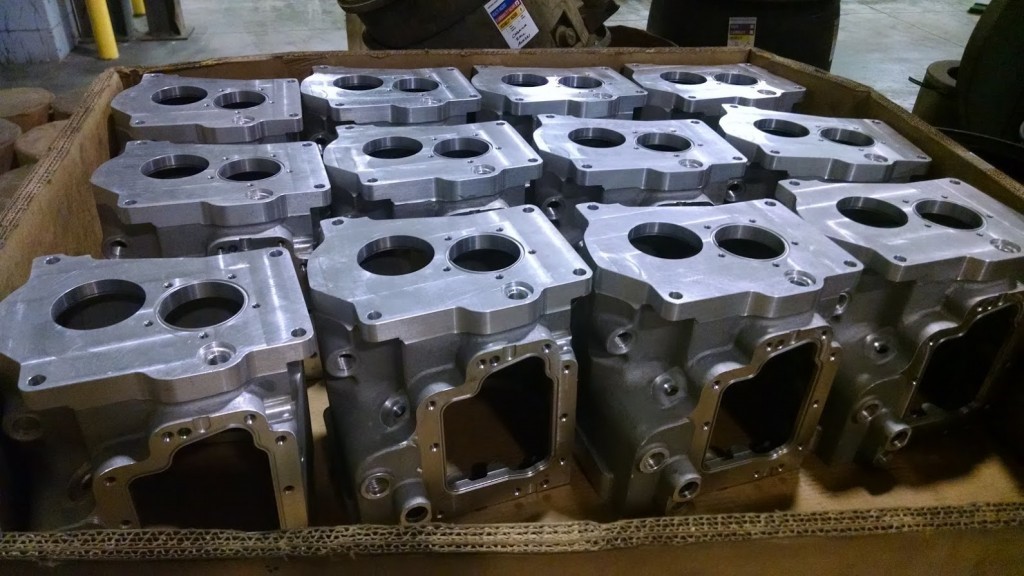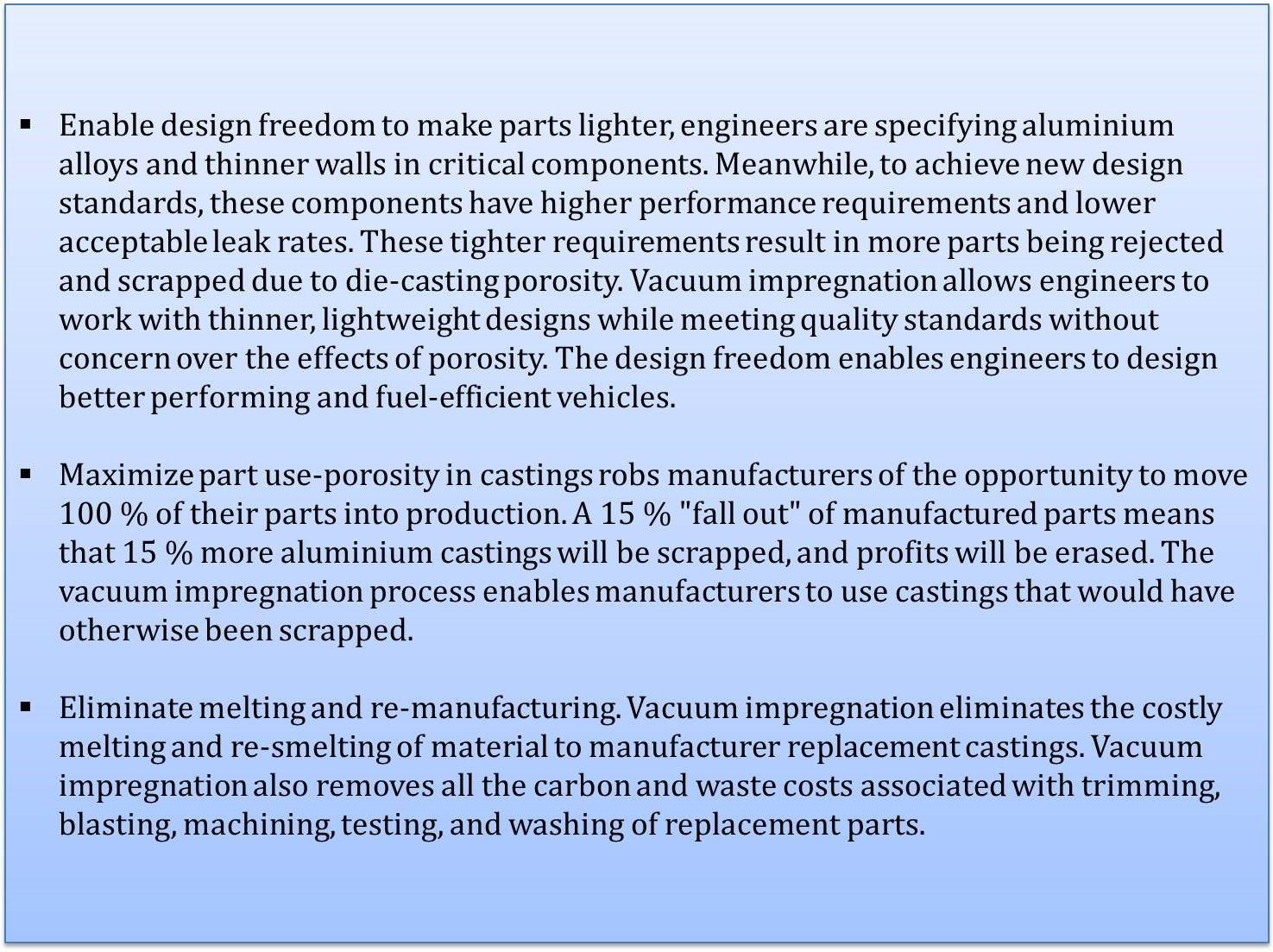

The auto manufacturers are grasping that being environmentally responsible and profitable are not mutually exclusive. Being environmentally responsible can achieve better growth, cost savings, improve brand recognition, and increase profitability.

The environmental impact of the responsible use of resources is beneficial to everyone; hence automotive manufacturers play a vital role. Environmental consciousness is occurring at all channels of the production process. Audi’s closed-loop recycling manufacturing process and Ford's closed-loop recycling manufacturing process are the leading examples.
Aluminium die-casting manufacturers are reducing their carbon footprint with the use of green aluminium. Green aluminium is manufactured using less carbon-intensive hydropower rather than carbon-intensive fossil fuels.

On the further move, manufacturers are driving to reduce waste and conserve resources through vacuum impregnation.
Whether caused by shrinkage, cold shuts, inclusion, or entrapped gasses, porosity is inherent in the casting process. Interconnected porosity leads to defects, which are the leading cause of waste and scrap. This waste increases the carbon footprint of the casting process.
Vacuum impregnation is a low impact method of sealing leak paths that form during the casting process. Specifically, it seals the internal, interconnecting path of porosity, which breaches the casting wall. The technique seals the porosity without changing the casting's dimensional or functional characteristics.
The three stand-out reasons vacuum impregnation enables companies to be environmentally conscious:

Vacuum impregnation enables automotive manufacturers to dramatically reduce their waste and control their resources by returning nearly 100 % of parts to the production line.
Responses








